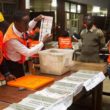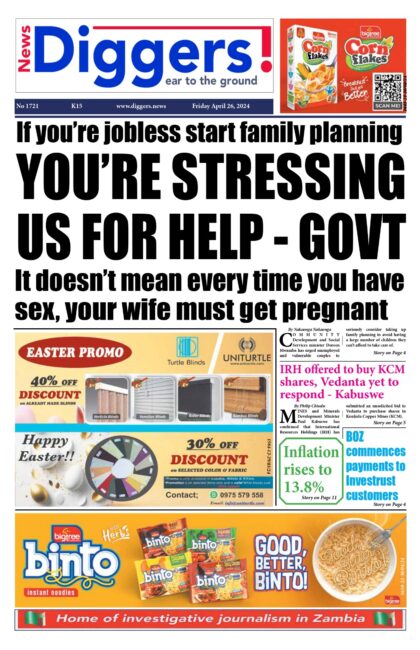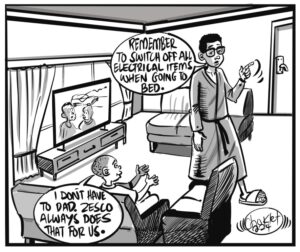Electoral Commission of Zambia (ECZ) Chief Electoral Officer Patrick Nshindano says government has only allocated K100 million for voter registration this year from the budgeted K880 million.
Speaking on Prime Television’s Oxygen of Democracy, Monday evening, Nshindano said the allocation indicated that it was not spared from austerity measures.
“I can clearly tell you that there have been huge cuts across the board! Let me just give you an illustration of one, which I call extremely critical for enabling elections to happen in this country, which is the voter registration exercise. Our budget is about K880 million and citizens are free out there (to) look at the Yellow Book, it will tell you how much has been allocated there: it is only K100 million and this is a very critical component of voting in the electoral process. So, it tells you the levels of impact in terms of austerity measures…it hasn’t spared us!” Nshindano said.
He insisted that the Commission had not blocked any stakeholder from sponsoring their own observers to monitor the printing of ballot papers in Dubai.
“I think first and foremost, we need to look at it at the angle of: are we taking away what was there in terms of observing? The issue of transparency and accountability, clearly, that is not being taken away. Political parties are still free to come through and join the monitoring. In terms of observing the printing of ballot papers, civil society is free, any other stakeholder is free. What we are saying is that the Electoral Commission of Zambia, like the entire nation, is undergoing austerity measures and at this particular point in time, we have also not been spared with the austerity measures that we have,” he said.
“On the part of a political party, can you sponsor one of your observers to come with us as opposed to the practice. Because really, under the current practice, this is unsustainable. And it might be interesting to note that Zambia is the only country that sponsors political parties to go and observe the printing. The question is ‘why don’t other countries do it?’ It could be that it is the issue of sustainability.”
Nshindano said the Commission had printed ballot papers for all by-elections in Dubai since 2016 without any observers, and that there had been no sign of election malpractice detected since then.
“This practice commenced in 2006. Before that, we didn’t have and this was at the insistence of cooperating partners and, of course, we did pick it up when the cooperating partners were not there, but it is increasingly becoming unsustainable. We need to look at ways of how do we work together because that element of saying, ‘can you be part of this process’ is not being taken away; it is still there. We are saying, ‘come on board.’ Also, you might be interested that despite us from 2016 to-date, not carrying any political party observer, we have, as an Electoral Commission, ensured that that the ballot paper printing process is as transparent and accountable as possible,” Nshindano said.
When asked why the Commission was not lobbying for more funding from cooperating partners, Nshindano said the Commission was mainly supported by government and funding from donors was not guaranteed.
“We have a budget that is mainly supported by government, cooperating partners is an engagement process. What is guaranteed at this particular point is what is coming from the Treasury, which is approved, and that is the large chunk of the budget. We do get some resources from cooperating partners and that has to be done through engagement and is something that we cannot guarantee at this time,” said Nshindano.













One Response
Another case of electoral fraud